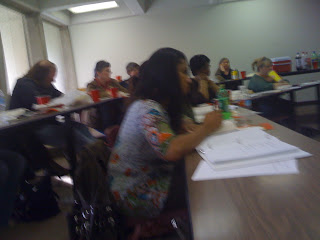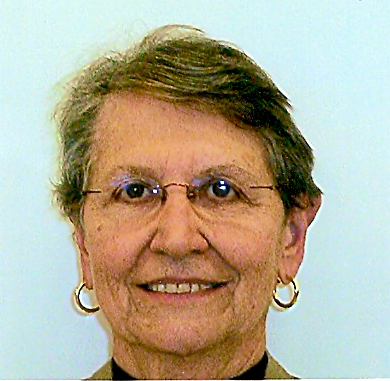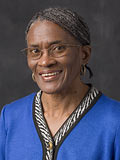Sister’s need to control something has her ordering around a little black girl. I get the concept without the word. The girl took nine trips up and down the hill, and Uncle Ronda is the one to throw her a nickel for her troubles. Does Sister offer her any compensation? No. The child is merely her slave for a day.
Last summer, I spent time reading all of Flannery O’Connor’s work for the Southern Reading Challenge. At first I did not like her. Not one iota! Her benign use of the N word set me off. Just as Welty, I got the point without all the word usage, but then I realized she wasn’t trying to make a point. The N word was just a vocabulary choice and not meant to set my teeth. I went back and reread O’Connor’s work and these are my thoughts at the time, and this is my copy written for the newspapers that following week.

 JenClair, a bloggie friend, had the same complaint (scroll down to the Hey Maggie post) upon reading O’Connor. Her source of relief came in the form of O’Connor’s book, Letters of Flannery O'Connor: The Habit of Being. I decided to look in Suzanne Marrs’ Eudora Welty: A Biography for answers.
JenClair, a bloggie friend, had the same complaint (scroll down to the Hey Maggie post) upon reading O’Connor. Her source of relief came in the form of O’Connor’s book, Letters of Flannery O'Connor: The Habit of Being. I decided to look in Suzanne Marrs’ Eudora Welty: A Biography for answers.Marrs continues in the same paragraph: “In Eudora’s stories, narrative voice was seldom unitary, and in the 1930s and 1940s, it at times shifted into voices of white characters for whom nigger was a culturally inherited concept and who unselfconsciously and obtusely used the term without thought of or care for its effect. Given the political climate of 1980, however, Eudora feared that such characters might seem more bullying than benighted and that her stories might be misconstrued.” (453)
Can you as reader guess my question? Miss Welty intentionally left the offending words in Sister’s speech. I saw Sister using them in a bullying fashion, but given the silliness of Sister’s character, I must be wrong. Did I fall into the 1980s reader of which Miss Welty spoke? ~ Maggie





































